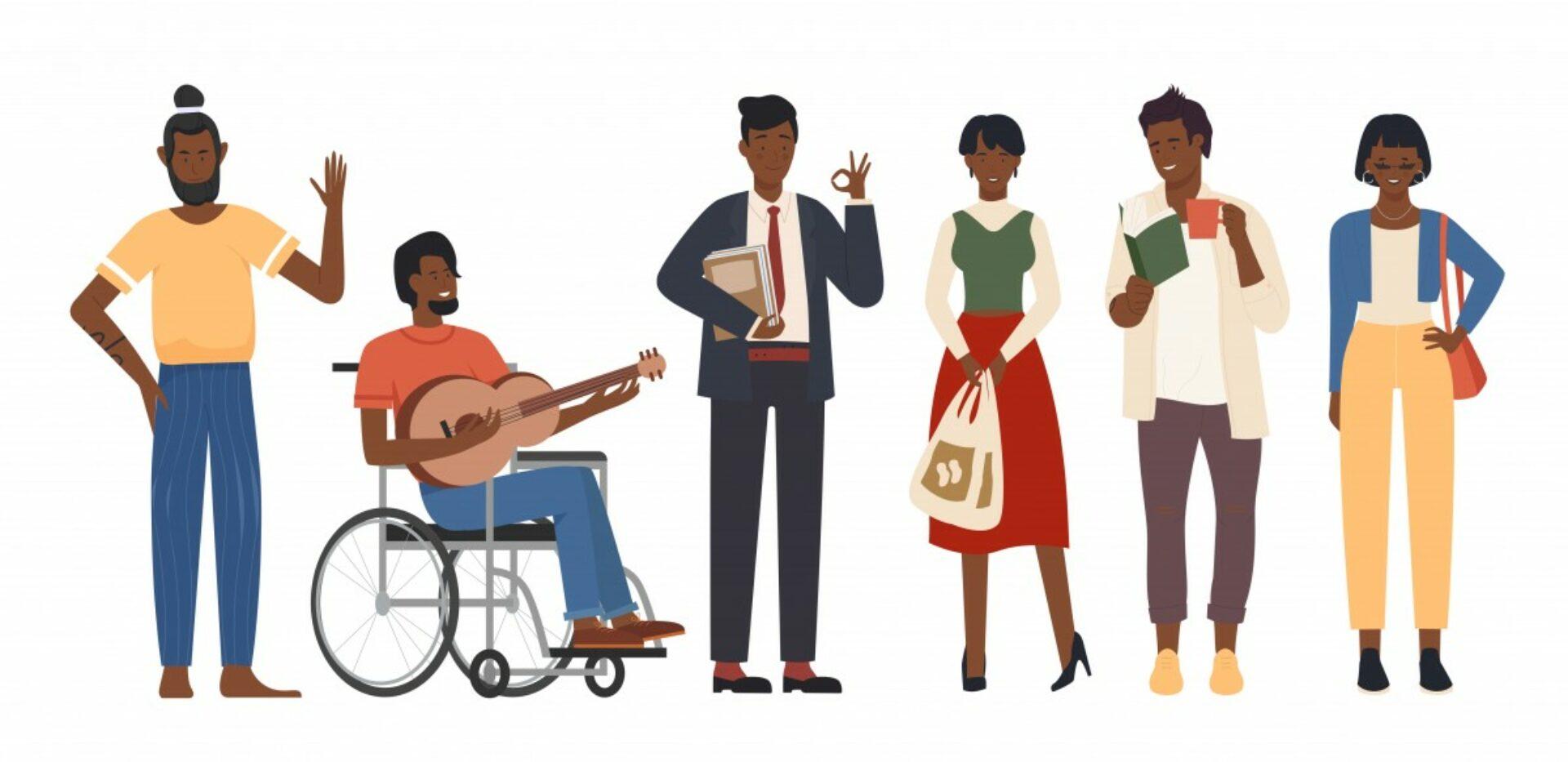McPin Research Director Vanessa Pinfold shares some reflections on ‘actions not words’ for Black History Month 2022.
Vanessa Pinfold
We have recently joined a new programme called Inclusive Boards to provide us with another way to drive forward our EDI (Equality Diversity and Inclusion) – or as I learned recently JEDI (Justice, Equality, Diversity and Inclusion) – work at McPin.
In the past year we’ve been developing a new strategy for the charity, and central in all our conversations with staff, trustees and our wider family of lived experience advisors and consultants has been a focus on anti-oppressive practices.
Whether it is responding to a documentary, like the recent Panorama investigation of abuse in a secure psychiatric hospital in Manchester, or the ongoing violence experienced by Black and people of colour in our community, such as Chris Kaba, or Black History Month, we know that our actions and energy need to extend far beyond an ‘awareness’ period but be embedded in our lifelong learning and concerns.
Fostering open conversations
At McPin the intention has been to bring conversations into the open far more frequently – whether that is in project sessions with academic partners, strategy meetings with other mental health research or charity leaders, team meetings or review sessions with staff, and agree actions.
Everyone’s annual appraisal now sets targets for anti-racism and anti-oppressive work orientated towards specific work tasks as well as self-education, including the choice to attend specific courses.
There are lots of ways an organization can encourage and support staff to engage in challenging aspects of our history and think deeply about how we can deliver our mission in a more equitable, open way.
Our mission will always be to transform mental health research and centre those with lived experience. And I thought I would share a few personal reflections mid-way through Black History Month 2022.
Actions not words
The theme of Black History Month this year is ‘actions not words’. I am a mum to two teenage daughters and one of my actions in the last few years has been to bring into our house more books, podcasts and conversations about white privilege, racism, discrimination and inequalities.
I went on a course earlier this year run by Jess Mally which I highly recommend: an introduction to anti-racism. It was a really good use of four Wednesday evenings and I still draw upon the conversations we hadin that group now, as I talk with family and colleagues.
What this course provided was the opportunity to listen, reflect and digest alongside other aspects of the past that are often ignored; and to consider the feelings of others, particularly people of Black heritage living in the UK today, for how we present our history and heritage.
I have a long reading list to work through – and I might have to move towards audiobooks while I walk our dog to make better progress. Top of my list is ‘Black and British’ by David Olusoga.
Revolution for radical inclusion
Earlier this month, I was at a weekend mental health festival run by young people from the TRIUMPH network in Edinburgh. It is a transdisciplinary network that is concerned with youth public mental health, especially among those in greatest need.
It was a really thought-provoking two days, spending time with young mental health activists, and included conversations about racism, British imperialism and how to get beneath the surface on big topics, such as what is wrong in our society and, in the midst of a cost-of-living crisis and government chaos, how can we create a mentally healthy society?
Revolution was mentioned, with strong support for radical inclusive solutions, reflecting the needs of racialized and marginalized communities.
Learning from others, and each other
I have a long way to go progressing my knowledge and understanding in order to be a better leader, working and running a mental health organization, centered to address racism and all forms of oppression.
As an organisation we won’t always get it right, but we do want to foster an environment that is safe for people to raise issues and we are committed to hear them, learn from them and take action when they do occur, including micro-aggressions.
At McPin we are launching our speakers’ programme, inviting guests to talk to the team, covering a range of topics that help us deliver more inclusive mental health research.
The first of these is this month, led by Doreen Joseph (who has recently launched narrative Black History Group) and Paul Grey. We are thrilled to host two experienced cultural studies and mental health activist experts who will challenge and educate about Black History.
We are also encouraging staff to share resources and ideas (books, podcasts, TV programmes etc.) that they have found useful in our October team meeting.
I recently stumbled across Great Lives on BBC Radio 4 with Bonnie Greer exploring the history of Morant Bay in Jamaica and the hidden history of seven female activists.
I know our team will have lots to share, and look forward to their recommendations. Crowdsourcing actions as well as learning materials is essential.
My next steps include spending at least one day at half term exploring London with my kids, visiting Black History events including the V&A exhibition Africa Fashion; supporting Black businesses, including on Etsy; and, from an organisation perspective, looking at the survey results and report that will be coming our way from Inclusive Boards in about 8 weeks’ time, with support from Do it now now to take forward recommendations – namely new actions.
